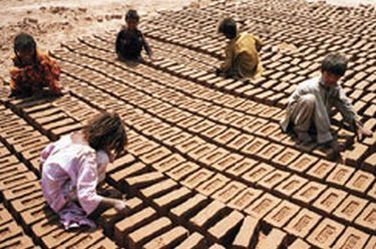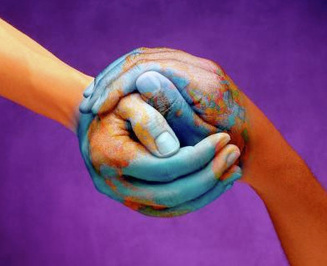Discussion

Child Labour in India
This final section will be devoted to a discussion of these roles and what role international social work can play. The role of NGOs’ in providing education have clearly been developed to give greater control to international NGOs’ over the educational direction, purposes, schooling experience, linguistic content and cultural content of sovereign nations (Pillay, 2010). The role of NGOs’ at the formulation level of education is similar to that of colonizers because of the NGOs’ roles become oppressive, in attempts homogenize economies, cultures and livelihoods, and fail to meet the cultural needs of communities (Rose, 2009). The roles of NGOs’ at the implementation stage are varying. NGOs’ can take on the role of collaborator, advocate, or partner as well as bully and or oppressor. In each case the success of implementation is based on the strength or weakness of the government and the strength of the ability of a local civil society to link social capital. At the participation and engagement level it has been shown that the international and local NGOs’ can act as “key nodes” (Dale & Sparkes, 2010), which has enabled them to help form collaborative networks among local communities and school officials to help develop culturally relevant programming. However, at the same time the process of including local communities in school programming at this level is problematic as most of the educational agendas have been determined at the formulation and implementation level. The role that NGOs’ play at the monitoring level can again vary based on the ability of community and government to link its social capital with NGO programming. At best NGOs’ seem to take on a collaborative role and involve the local community in assessing the value of the program. At there worst NGOs’ may ignore government and local standards of education and attempt to monitor themselves taken on the role of patriarchal, benevolent role.
Alhough the roles vary it seems clear that NGOs’ operate through a neo-liberal agenda that stems from the top-down, with little to no collaboration from local communities at the top levels, but more as the levels flow downwards. Friere argues that this kind of anti-dialogical pedagogy in which the teacher's knowledge is taught to the student and becomes their consciousness is totalitarian, and simply attempts to indoctrinate rather than liberate (Mocomba, 2005). This is how education has been formulated and how NGOs’ operate.
Alhough the roles vary it seems clear that NGOs’ operate through a neo-liberal agenda that stems from the top-down, with little to no collaboration from local communities at the top levels, but more as the levels flow downwards. Friere argues that this kind of anti-dialogical pedagogy in which the teacher's knowledge is taught to the student and becomes their consciousness is totalitarian, and simply attempts to indoctrinate rather than liberate (Mocomba, 2005). This is how education has been formulated and how NGOs’ operate.
.

The role of International social work can plays a very important role in changing how education is delivered. Given that international social workers are employed in the international development sphere by local and international NGOs, governments and multi-lateral institutions, they can play important role in changing the educational process. At each level of education initiatives the local communities needs are either not well represented or not represented at all. I believe that this is where social workers need to act. That is, they need to find ways to formulate more permit structures that allow for the adequate and proper linking of social capital at all levels of education.
To form more permit collaborative networks international social workers can operate from both the "top-down" and the "bottom up." For example from the top down when representatives of the state, global society, and local civil society establish common forums through which they can pursue common goals, both social and economic development can proceed. Woolcock & Narayan (2000) argue that in these circumstances ability to form strong linking social capital has a role as a mediating variable. Socail workers should be working with international institutes to grow structural social capital which enables a greater linking of state, global society, and local civil society. This may, (in the long run) simultaneously increase cognitive social capital forming a higher level of institutional trust, which in turn increase international social welfare. From a "top down" level, social workers can enable positive educational community capacity building by enabling structures that better allow excluded groups to link and collaborate with the international institutes. Social workers can conduct three central tasks by…
To form more permit collaborative networks international social workers can operate from both the "top-down" and the "bottom up." For example from the top down when representatives of the state, global society, and local civil society establish common forums through which they can pursue common goals, both social and economic development can proceed. Woolcock & Narayan (2000) argue that in these circumstances ability to form strong linking social capital has a role as a mediating variable. Socail workers should be working with international institutes to grow structural social capital which enables a greater linking of state, global society, and local civil society. This may, (in the long run) simultaneously increase cognitive social capital forming a higher level of institutional trust, which in turn increase international social welfare. From a "top down" level, social workers can enable positive educational community capacity building by enabling structures that better allow excluded groups to link and collaborate with the international institutes. Social workers can conduct three central tasks by…
1. Identify the nature and extent of a community's social relationships and formal institutions, and the interaction between them;
2. Develop institutional strategies based on these social relations, particularly the extent of linking social capital;
3. Determine how the positive manifestations of social capital (such as cooperation, trust, and institutional efficiency) can offset sectarianism, isolationism, and corruption. In other words, the challenge is to transform situations where a community's social capital substitutes for weak, hostile, or indifferent formal institutions into ones in which both realms complement one another (Woolcock & Nayaran, 2000).
2. Develop institutional strategies based on these social relations, particularly the extent of linking social capital;
3. Determine how the positive manifestations of social capital (such as cooperation, trust, and institutional efficiency) can offset sectarianism, isolationism, and corruption. In other words, the challenge is to transform situations where a community's social capital substitutes for weak, hostile, or indifferent formal institutions into ones in which both realms complement one another (Woolcock & Nayaran, 2000).
Social workers may also be able to build better a collaborative process from the bottom up by empowering local communities to actively engage in educational process. In this case social workers can act as “key nodes" to help communities link with the decision makers within international institutes and governments. Social workers can work to empower and advocate for the community as well as develop strategic alliances and collaborative dialogues with these forces to help create structural changes that allow communities more permanent access to these decision makers (Dale & Sparkes, 2010; Postle & Beresford, 2007).
These network structures are important and can create diversity and inclusivity in educational policies and can lead to more culturally relevant programming. The building of trust is essential for developing critical linking social capital. Social workers can support the creation of self-organizing, loosely structured, non-hierarchical relationships between networks by helping groups to see a role for themselves in one or more of the networks and throughout the entire process. This can help contribute to greater inclusivity of community members and may be more effective at sustaining long-term commitment and allowing for the expression of a diversity of voice and actions (Dale & Sparkes, 2010; Postle & Beresford, 2007).
.

Often the power dynamics between smaller groups and international and government forces are massively unequal. In order to help establish these dialogues and alliances it may be important for social workers to mobilize larger groups to socially act through protest and petitions, as well as utilize the media to bring exposure to the issues. (Dale & Sparkes, 2010; Postle & Beresford, 2007).
I believe that the role of social work isn’t to push one agenda over another (neo-liberalism vs cultural relevancy) as both have their strengths and weaknesses. I believe that the goal of social work is to create a healthy balance based on the needs of the local community and this can be etablished by enbaling more equal collabortaive relationships tp form. Globalization has created massively unequal systems and promotes a western dominated mono-culture, mono economy and hegemony of everyone under and euro-centric models of development (Coates, 2003; Mullay, 2007; Shiva 2005). Therefore social workers need to advocate for the dual transformation of grassroots control over the means of knowledge production and the power to determine what valid or useful knowledge is for that community (Creswell, 2009; Hicks, 1997).
I believe that the role of social work isn’t to push one agenda over another (neo-liberalism vs cultural relevancy) as both have their strengths and weaknesses. I believe that the goal of social work is to create a healthy balance based on the needs of the local community and this can be etablished by enbaling more equal collabortaive relationships tp form. Globalization has created massively unequal systems and promotes a western dominated mono-culture, mono economy and hegemony of everyone under and euro-centric models of development (Coates, 2003; Mullay, 2007; Shiva 2005). Therefore social workers need to advocate for the dual transformation of grassroots control over the means of knowledge production and the power to determine what valid or useful knowledge is for that community (Creswell, 2009; Hicks, 1997).
